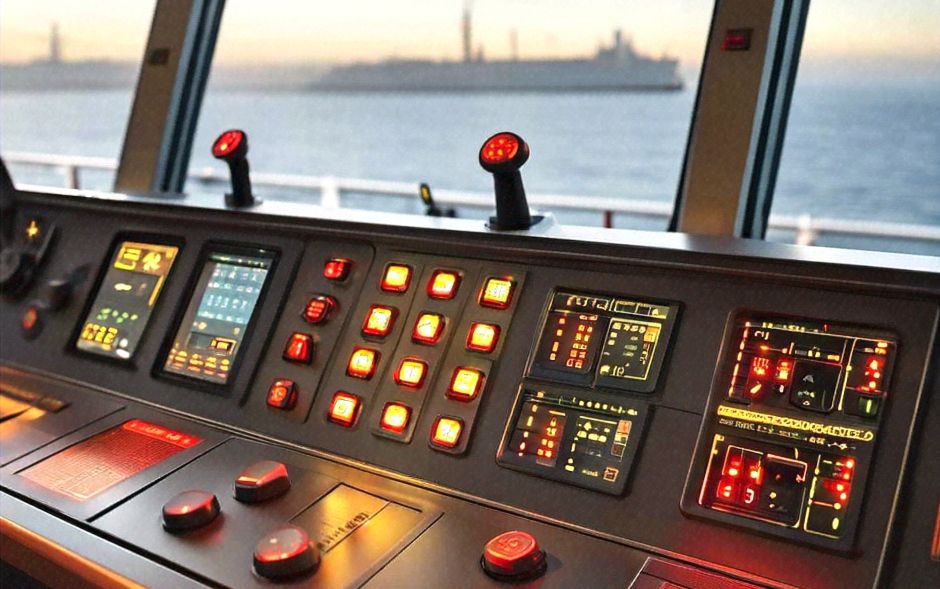Alarm fatigue increases with new digital systems

Over the past 20 years, alarms on commercial vessels' bridges have increased by 197 percent. The cacophony of sounds and visual warnings irritates and creates alarm fatigue onboard, which can have devastating consequences. This according to a new report from Lloyd’s Register.
Lights are flashing and beeping constantly—up to 74 times per hour! This was what the research team from Lloyd's Register discovered when they examined how frequently alarms affected officers, deck crew, and engineering staff on 15 different vessels. In other words, the on-duty officer would need to read, acknowledge, analyze, decide, and act on an alarm more than once a minute, which is, of course, an impossible and terrifying task. In the report Effective Alarm Management in the Maritime Industry, the researchers note that the crew, "for good reasons", have stopped using the system.
Even worse was the situation in a certain type of engine room. The average number of alarms per day: 2,500. Peak record: 22,500, nearly a thousand per hour! Good luck dealing with that.
In the survey, there was a consistent feeling of being constantly overwhelmed by alarms, with statements such as “I feel like I’m doing nothing but pressing the acknowledge button” and “the alarms are too numerous to count,” even in predictable situations. The excessive alarming can, in the worst-case scenario, distract the staff to the extent that they miss important information, which can lead to undesirable consequences (such as a minor grounding that was reported in one case).
The reason for the increasing number of alarms is, not surprisingly, tied to the industry’s rapid digitization. Warning beeps and flashes are easy to program in, and there are no regulations regarding what types of faults require the crew's attention. As new digital systems spread, more alarms are added onboard.
“This investigation reveals the unintended consequences of many uncoordinated alarm requirements being assembled together in a ship system. There is an obvious need for some alarms but confusion regarding necessary actions or uncertainty regarding root causes can lead or contribute to serious incidents. This comprehensive study represents a key step in addressing these challenges," said Duncan Duffy, Chief Technology Officer at Lloyd's Register, in a press release.
The study also highlights the benefits of alarm systems and how they can support the crew both during normal operations and in demanding situations. However, to maximize their utility, alarm frequency needs to be monitored and controlled more effectively. With funding from the Danish Maritime Fund, Lloyd's Register and several partners have started a working group to study alarm systems and methods. Among other things, they will look at how other industries have managed excessive alarming.
-
 Ny studie: Eldrivna pendelbåtar kan effektivisera Stockholms kollektivtrafik
Ny studie: Eldrivna pendelbåtar kan effektivisera Stockholms kollektivtrafik -
 EU: Sjöfartens utsläpp ökar
EU: Sjöfartens utsläpp ökar -
 Sociala relationer påverkar val av bränsle
Sociala relationer påverkar val av bränsle -
 Sjöfartens omställning kräver ”mjukare” påtryckningar
Sjöfartens omställning kräver ”mjukare” påtryckningar -
 Hon hade avtalad tid med Kapten ynkrygg
Hon hade avtalad tid med Kapten ynkrygg -
 Lighthouse omvärldsanalys 2025 – osäkerhet och tullar präglar sjöfarten
Lighthouse omvärldsanalys 2025 – osäkerhet och tullar präglar sjöfarten -
 Se seminariet Shipping in the Marine Environment
Se seminariet Shipping in the Marine Environment -
 Vad betyder egentligen de 90 procenten?
Vad betyder egentligen de 90 procenten? -
 Hålla där...
Hålla där... -
 Ny rapport: Klimatförändringarna ett hot mot de flesta större hamnar i världen
Ny rapport: Klimatförändringarna ett hot mot de flesta större hamnar i världen

